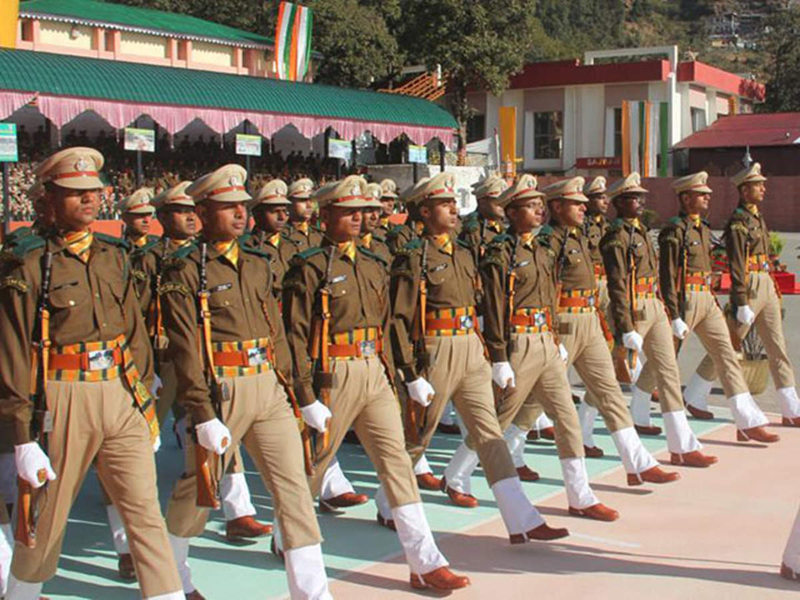Police & CAPF Recruitment: What happened in this recruitment exam, the sword of rejection hangs over 30% of the youth, understand the whole matter in 20 points..

Police & CAPF Recruitment: Something has happened in the police recruitment exam, due to which the sword of rejection has once again hung over about 30 percent of the youth. This is not the first time that such a large number of youth have been rejected at once. Earlier also, in the recruitment of police and Central Armed Police Force, about the same number of youth have been rejected due to the Detailed Medical Examination (DME).
In the past years, 40 to 50 percent rejection has been seen due to DME many times. If any youth in your family is preparing for recruitment into the Central Armed Police Force or Police, then definitely make him aware of these 20 things. It may happen that due to a very minor mistake, a youth gets rejected in the detailed medical examination and his years of hard work goes waste in a moment.
Understand 20 reasons for rejection in detailed medical examination
Youngsters suffering from diseases like hypertension, arthritis, tuberculosis, syphilis infection, and sexually transmitted diseases are rejected in DME for police or CAPF.
Bronchial or laryngitis diseases like chronic tonsillitis and adenoids indicating throat infection can become a hindrance in CAPF and police recruitment. At the same time, asthma is also a reason for rejection in DME.
If a youngster has a heart-related disease, then his dream of getting recruited into the police or Central Armed Police Force is almost impossible. During DME, heart or valvular diseases become a major reason for rejection.
Otitis media is also a major reason for rejection by police and CAPF. Otis Media has a middle ear infection. Due to this disease, the fluid coming out of the ear gets blocked, and the risk of bacterial infection increases.
The eyes of the youth are also examined in DME. If their eyesight is weak, they are having difficulty in recognizing colors, there is squinting in the eyes, then they cannot be selected for any police force or armed force.
Ears are also examined during DME. During this examination, the hearing ability of the youth is assessed. If the youth whose hearing ability is found to be less than the prescribed standards, then he is rejected.
If a youth has difficulty in speaking or he stammers while speaking, then he is also rejected during the detailed medical examination.
There are also several teeth in DME. If a young person has full or half artificial teeth and his dental points are less than 14, he has to face rejection.
In DME, chest contraction, any kind of joint problem, or way of walking is taken very seriously. If any kind of problem is found, the candidate is rejected.
The spine is also examined in the recruitment of police, paramilitary forces, and the Indian army. If there is a problem like kyphosis, scoliosis, or lordosis in the spine, then the concerned candidate is rejected.
Due to endocrine disorders, any person is likely to suffer from thyroid, growth disorder, diabetes, sexual dysfunction along hormone-related disease. Therefore, candidates suffering from endocrine disorders are rejected.
Candidates suffering from nervous instability, defective intelligence, and mental illnesses may also face rejection.
Candidates suffering from leprosy, vitiligo, eczema, SLE, and fungal infection are considered ineligible for police and armed forces.
During DME, the position of the hand and elbow in the cubitus varus of the candidate is assessed. Youngsters suffering from valgus and cubitus varus problems may face rejection.
Youngsters suffering from piles, anal fistula, and other anorectal diseases are rejected during the detailed medical examination.
Youths suffering from epilepsy are also not recruited by the police and armed forces. Candidates suffering from epilepsy can be rejected in a detailed medical examination.
Youths suffering from hydrocele will be rejected in DME. Even if the hydrocele is treatable. However, such small hydroceles, which do not leave a bad scar after the operation, can be accepted.
Candidates with foot deformities like flat feet, club feet, and plantar warts are not accepted in the DME of police and armed forces.
If a youth is suffering from a hernia, then he will also be rejected in DME.
Polydactyly in hands or feet is also a big reason for rejection by police and armed forces. Let us tell you that the condition of youth having six fingers in their hands or feet is called polydactyly.





